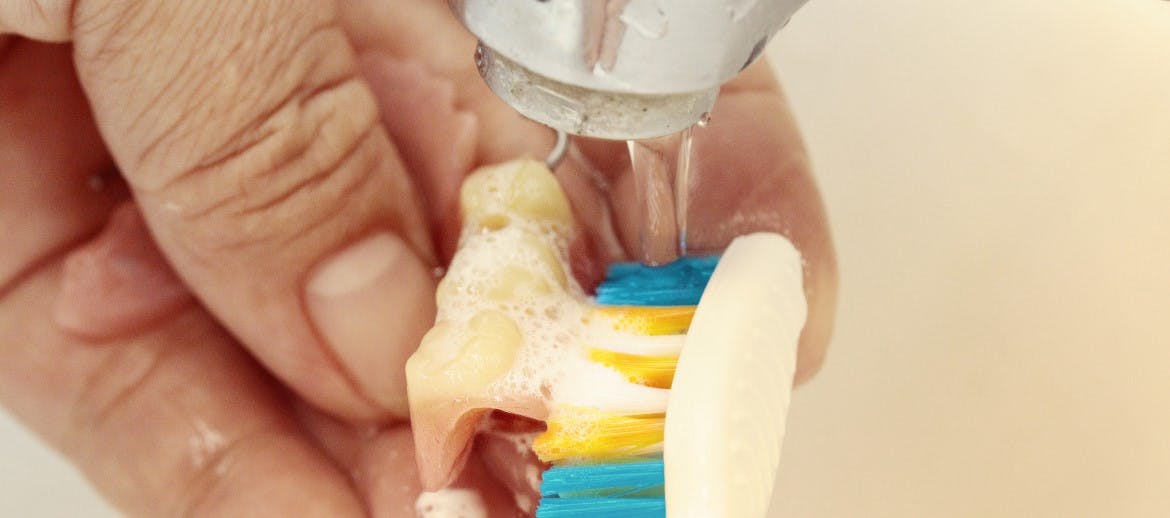How to Clean Partial Dentures
Learning how to clean your partial dentures is one of the best things you can do for your new teeth, but with all the products on the market, it can be hard to select the right ones to help you get the job done. Without proper denture hygiene, your dentures might start to develop a film of plaque, which can eventually harden into tartar.1 If you’re not sure where to start with denture maintenance, then the low-abrasive formulas in Polident have got you covered. Use the tips below to help keep your partials clean and plaque-free. Be sure to consult with your dentist for care guidance.
ADVICE ON CLEANING PARTIAL DENTURES
It’s important to take good care of your partials so they can stay fresh and comfortable in your mouth. Cleaning partial dentures regularly is an essential part of keeping them looking their best. Here are a few adjustments you’ll need to make to your daily oral care routine to help ensure that your partials last for years to come.
Removing Your Partials
Removing your partials regularly will keep your mouth healthy. To help prevent stains and plaque, remove your partials from your mouth and clean them every day.
Brushing Your Partials
Clean your partial at least once a day with a soft-bristled toothbrush like Polident Dental Appliance Brush and a non-abrasive cleanser like Polident 3-Minute Denture Cleanser.2 Some ingredients found in toothpaste are abrasive and can damage or scratch your partials.2 That’s why it’s important to use a gentle, nonabrasive cleanser and a soft-bristled toothbrush to brush them.2 Try not to scrub your partials too hard, and avoid using any products that contain bleach.1,2
Rinse your partials thoroughly under running water (just not hot water) to wash off the remaining solution before wearing them again so they feel fresh.2
Storing Your Partials
Most dentures need to be placed in water or a cleansing solution overnight to keep their shape.2 Place your partials in a glass of water or a cleansing solution like Polident Overnight Whitening Denture Cleanser whenever you’re not wearing them to prevent them from drying out. Make sure to rinse your dentures thoroughly before placing them in your mouth after using a cleansing solution.1 Always store your partials as advised by a dental professional.
Rinsing Your Partials
Rinsing your dentures after you eat will help wash off some of the food and debris that could lead to plaque buildup. Dentures are fragile, so make sure to rinse them over a bowl of water or a folded towel to avoid dropping them.1
Ask Your Dentist About Partials
If you have questions about how to clean partial dentures, ask your dentist or dental hygienist for their advice. Steps may vary depending on the type of partials you have and what your partials are made of. Your dentist can also assist you in removing any tartar or stubborn stains off your partials.2
Source Citations:
-
Denture cleaning. Oral Health Foundation. https://www.dentalhealth.org/denture-cleaning Accessed 7/13/2023. - Denture Care and Maintenance. Oral Health Foundation. https://www.ada.org/en/resources/research/science-and-research-institute/oral-health-topics/dentures Accessed 7/13/2023.





